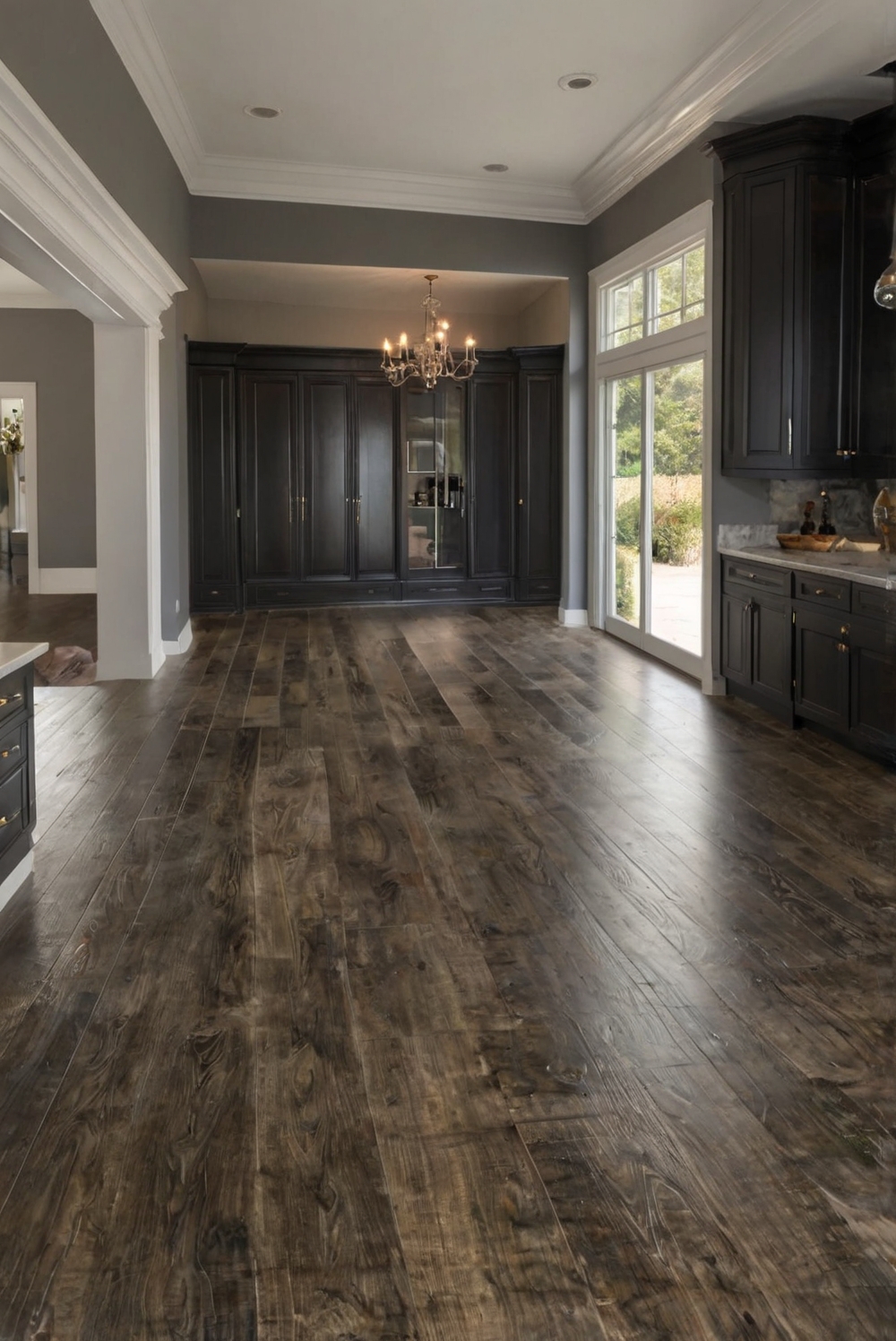Incorporate moisture-resistant baseboards into your kitchen flooring design for both functionality and style. Discover how this simple addition can enhance your space.
**h2 title:**
Should I install moisture-resistant baseboards for kitchen flooring?
**Answer:**
Installing moisture-resistant baseboards in your kitchen is crucial for maintaining the integrity and condition of your flooring. Moisture can seep into the baseboards from spills or leaks, leading to water damage, mold growth, and warping of the floorboards. By using moisture-resistant baseboards, you can protect your kitchen flooring from these potential hazards.
When choosing moisture-resistant baseboards, look for materials like PVC or composite wood that can withstand exposure to moisture without swelling or deteriorating. Make sure to seal any gaps or joints properly to prevent water infiltration. Adding a waterproof paint or primer to the baseboards can also provide an extra layer of protection against moisture.
Proper space planning and interior design considerations can help you create a stylish and functional kitchen while ensuring that your flooring stays in top condition for years to come. Consider consulting interior designers who specialize in kitchen designs for expert advice on choosing the right baseboards and integrating them seamlessly into your kitchen decor.
Should I install moisture-resistant baseboards for kitchen flooring?
Installing moisture-resistant baseboards for kitchen flooring is highly recommended to protect your walls and flooring from water damage. Moisture-resistant baseboards are designed to withstand moisture and humidity levels commonly found in kitchens, making them an ideal choice for this area of your home. By using moisture-resistant baseboards, you can prevent water from seeping into the walls and causing mold growth or structural damage.
Another important reason to install moisture-resistant baseboards in the kitchen is that they are easy to clean and maintain. With the kitchen being a high-traffic area prone to spills and splashes, having baseboards that can be easily wiped clean is a major convenience. Regular baseboards can absorb moisture and stains, leading to discoloration and warping over time.
Furthermore, moisture-resistant baseboards can help improve the overall aesthetic of your kitchen. They come in a variety of styles and finishes, allowing you to choose a design that complements your flooring and cabinetry. With moisture-resistant baseboards, you can achieve a cohesive and polished look in your kitchen that is both functional and visually appealing.
What are the benefits of using moisture-resistant baseboards in the kitchen?
– Protection against water damage: Moisture-resistant baseboards prevent water from seeping into the walls and causing mold or structural issues.
– Easy to clean and maintain: These baseboards can be easily wiped clean, making them ideal for high-traffic areas like the kitchen.
– Improved aesthetics: Moisture-resistant baseboards come in a variety of styles and finishes, enhancing the overall look of your kitchen.
– Durability: These baseboards are designed to withstand moisture and humidity, ensuring longevity and performance.
How can moisture-resistant baseboards benefit the longevity of my kitchen flooring?
Moisture-resistant baseboards play a crucial role in protecting your kitchen flooring from water damage. By preventing moisture from seeping into the walls, these baseboards help maintain the integrity of your flooring materials. Water damage can cause warping, buckling, and discoloration in flooring, leading to costly repairs or replacements. By installing moisture-resistant baseboards, you create an additional barrier against water infiltration, prolonging the life of your kitchen flooring.
Are there different types of moisture-resistant baseboards available for kitchen flooring?
Yes, there are several types of moisture-resistant baseboards that you can choose from for your kitchen flooring. Some common options include:
– PVC baseboards: These are highly moisture-resistant and easy to clean, making them a popular choice for kitchens.
– Vinyl baseboards: Durable and water-resistant, vinyl baseboards are ideal for areas prone to moisture exposure.
– Composite baseboards: Made from a combination of materials, composite baseboards offer a balance of durability and moisture resistance.
What factors should I consider when selecting moisture-resistant baseboards for my kitchen flooring?
When choosing moisture-resistant baseboards for your kitchen flooring, consider factors such as material, style, and installation method. Some key considerations include:
– Material: Opt for high-quality moisture-resistant materials like PVC or vinyl for maximum durability.
– Style: Select baseboards that complement your kitchen decor and flooring for a cohesive look.
– Installation: Choose baseboards that are easy to install and maintain to ensure long-term performance.
In conclusion, installing moisture-resistant baseboards for your kitchen flooring is a wise decision that offers numerous benefits in terms of protection, durability, and aesthetics. By investing in high-quality moisture-resistant baseboards, you can safeguard your walls and flooring against water damage, enhance the longevity of your kitchen flooring, and create a visually appealing space that is easy to maintain. Consider the different types and factors when selecting moisture-resistant baseboards to ensure that you make the best choice for your kitchen.

